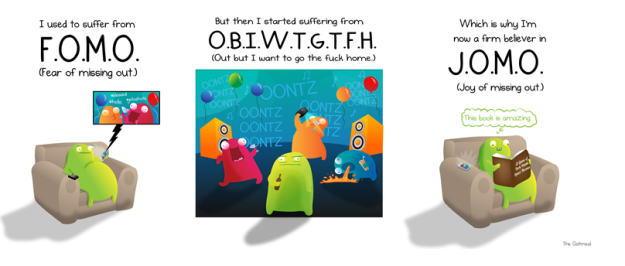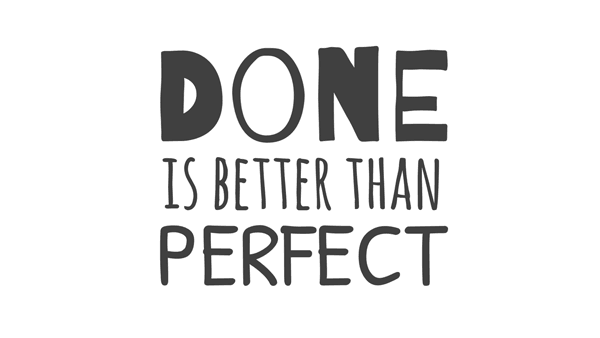In college, I was afraid of picking the wrong major and ending up in a job that I do not enjoy. Putting interest aside, I had an even tougher time when “staying in the US or going back to China” was thrown into the mix. What major I choose could determine how challenging it would be to find a job in the US and get H1B visa sponsorship. Having worked for 4.5 years while still discovering my strengths, weaknesses, and passion, I would like to share with you what I have learned. The article is primarily intended for college students, but might help anyone in pursuit of a fulfilling career.
Picking One Major/Job Does Not Restrict You from Exploring Other Interests
I struggled with deciding on my major, mainly because I am naturally curious about many different subjects – I love the talent focus of HR, excel in the analytical side of finance, get intrigued by the creative energy from marketing, and always enjoy reading insights shared by the psychologists. With the H1B complication, I even contemplated the accounting major, since public accounting firms then were usually generous with visa sponsorship. I was overwhelmed.
I remember talking to Irene, the co-founder of STLF and a Bush Foundation Fellow, and she shared that in college she had planned to graduate with major in marketing and minor in both supply chain and entrepreneurship. However, she felt a lot less freedom fulfilling all the different requirements of majors and minors than taking the classes that she was truly interested. Thus, she gave up the minors. Even though major(s) and minor(s) could demonstrate the commitment to a particular field, taking classes I love outside the business school and doing part-time internships matter more than what show up on transcript, I had one major (finance). Nevertheless, till this day, I am still learning about other disciplines either at work or outside work. I serve on marketing committees at employee resource groups, develop training programs for new hires, mentor college students, and read psychology books (the Heath Brothers and Dan Ariely all make great authors). I do not let the finance major define my interests. As a bonus, I rediscovered my passion to write, since blogging became a great avenue to help more international students.
Make the Call and Don’t Punish Yourself Later
Before deciding on finance, I seriously debated accounting because I wanted to stay in the US after graduation. At the time, I liked finance a bit more and had a neutral feeling towards accounting. An important factor was that it was easier to find jobs in the US with degrees in accounting than in finance. Then the questions I had to answer are:
- US or home?
- Am I willing to go back home when I can’t find finance job in the US?
- Am I willing to take a less desirable job so I could stay in the US?
In the end, I favored interests, because I could not see myself spending another year studying accounting to receive 150 credits (Most public accounting firms require 150 credits to sit for the CPA exams). I thought if I could not find a job in the US, I would be happier doing something I enjoy in China. Fortunately, I was able to find a finance position in the US.
Had I decided staying in the US was more important and looked for a job in public accounting, I might not be as fortunate in hindsight. Soon after my graduation, the US immigration services started the lottery system to decide who could receive visa. A couple of public accounting firms stopped providing sponsorship due to the risks that new international new hires may not be able to stay. Regardless, if I ended up being the unlucky one, I would remind myself what I prioritized to make the decisions. I would not punish myself for the change of events because lottery and sponsorship were factors that I could not possibly predict.
Research and Start Somewhere
What worked incredibly well for me in the interest search process is learning from people in the fields that I am interested in and getting hands-on experience, the latter of which helps me reflect on my likes and dislikes.
Here are my suggestions:
- Use all the resources. In my previous post, I discussed the importance of standing upon the shoulders of giants instead of uncovering everything on your own. It makes better use of your time and allows you to experience more.
- College career center should be your first stop
- I always recommend Future Fright Week workshops to any Carlson student. The workshops do a fantastic job highlighting different career paths of the majors.
- Reach out alumni for coffee and job shadowing opportunities (I have written a post on informational interviews).
- If you are thinking about returning home after graduation, this interview might give you some ideas. This is featured on the International Careers facebook page which includes interviews with several other international alums.
- University of Minnesota Alumni webinars are great for college graduates and could serve as good guidance for current students as well.
- The Internet is a gold mine. You could find a lot of relevant articles by googling. The resources are particularly abundant if you are interested in consulting and investment banking.
- College career center should be your first stop
- Start small with projects/internship to explore your interests. Even taking on a leadership position in a student club will shed some light.
- Understand your strengths, weaknesses, and values. Even though I was skeptical about leadership training, thinking it was just theoretical and fluffy, I embraced the concept and actively participated in LeaderShape and First Year Leadership Institute. The experience allows me to reflect on my values and receive feedback from a close-knit community. 7+ years later, I still hold all those learnings to heart and highly recommend them.
- Develop a routine to keep track. Whether they are follow-up actions from a networking conversation, articles on industry trends, a great story for future interview questions, find a way to record them. My friend Jess, a passionate educator and talented handlettering artist @prettyprintsandpaper, shared her method of using bullet journal to capture her findings and stay organized. I really like “Bullet Journal for Career Planning” and “Bullet Journal for Job Interviews”. These two articles not only have enlightening content, but also are fun to read because her handletterings are so pleasing to the eyes!
 (Image courtesy of PrettyPrintsAndPaper)
(Image courtesy of PrettyPrintsAndPaper)
If you are not 100% happy with what you do, do not stop exploring. I have faith that diligent research, experimental projects, and self-reflection will eventually allow you to connect all the dots.




